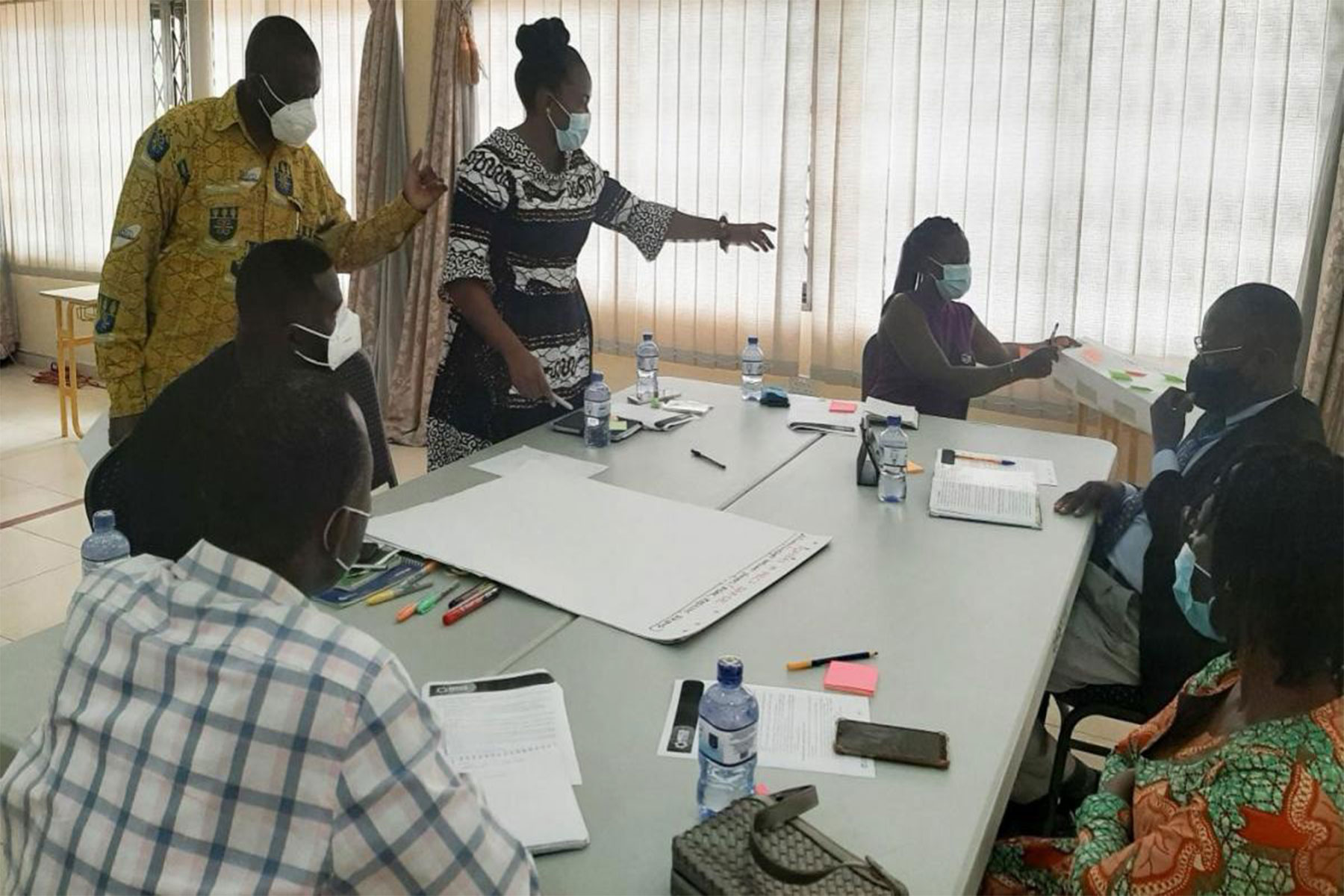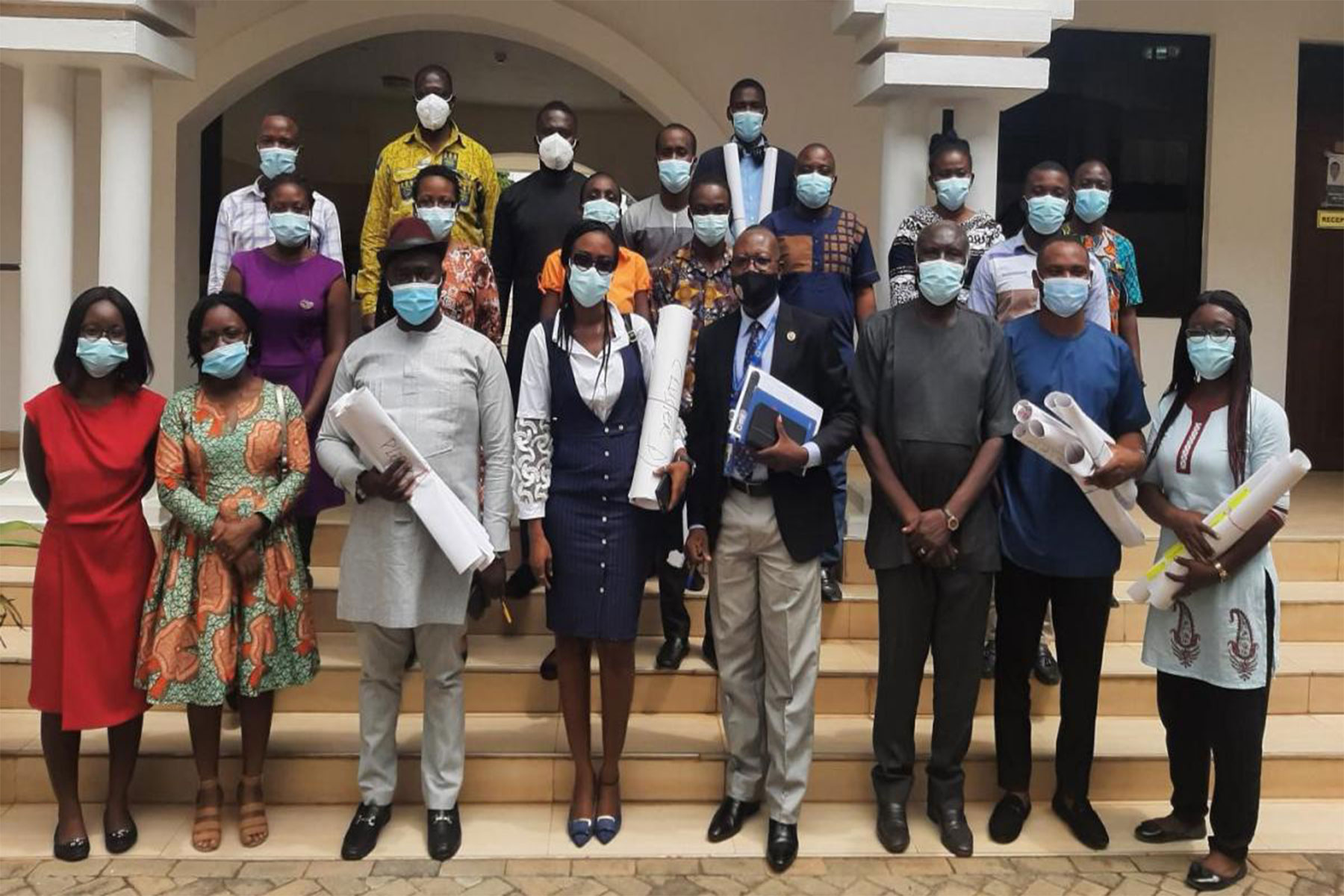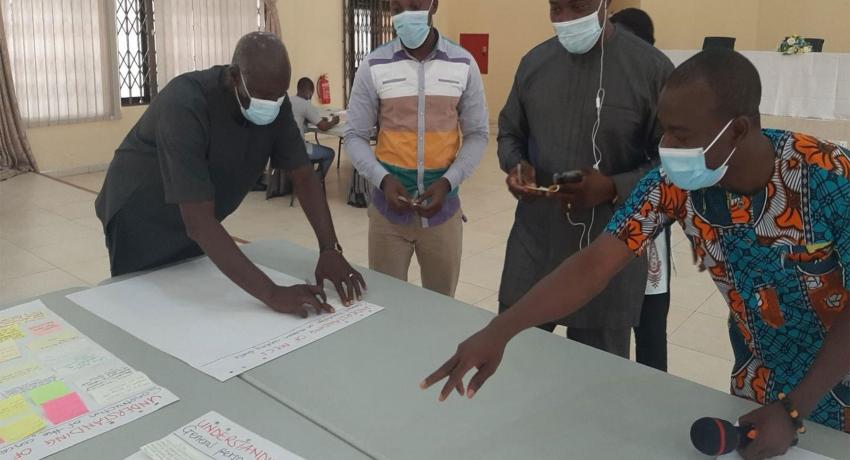The Modern Energy Cooking Services (MECS) Ghana project organised a workshop bringing together diverse stakeholders for a net-mapping exercise aimed at garnering views and opinions on cooking energy services, specifically modern energy cooking services, in Ghanaian households. It was held on 29th April, 2021 at the ISSER conference centre, under Covid-19-safe conditions.
Briefly opening the workshop, Principal Investigator (PI) Dr. Simon Bawakyillenuo, welcomed participants and thanked them for responding to the invitation to participate in the net mapping exercise – an important activity under the first phase of the MECS-Ghana project, aimed at eliciting key stakeholders’ views on modern energy cooking services in Ghana.
“Make your voices heard”, he urged the participants.
Working in two facilitated sessions – comprising a plenary session and breakout groups – participants responded to a pre-defined set of questions spanning six different themes, including: the understanding of MECS in Ghana, players in MECS space, the market potential of cooking with electricity, policy environment concerning electricity for cooking, drivers of MECS in the Ghanaian household, and strategies in relation to electricity for cooking (e-Cooking). The output of the net-mapping exercise is expected to complement other outputs such as the Household and Market Surveys Reports, the Landscape of Energy for Cooking Report as well as inform future activities of the MECS-Ghana project.

MECS is a 5-year programme funded by the UK Aid and managed by Loughborough University with significant partnership from the Energy Sector Management Assistance Program -ESMAP- (World Bank). The project spans more than 10 countries and is focused on understanding issues pertinent to the use of electricity in cooking.
The First Phase of the MECS-Ghana – a subsidiary of the main MECS project – seeks to understand and build local knowledge on the dynamics and the total picture of cooking behaviors and cooking energy services among various stakeholders in Ghana.
Participants in the net-mapping exercise included public, CSOs and private sector stakeholders operating in the areas of energy, development and academia, with facilitation by the MECS-Ghana project team. Among the stakeholders were representatives from Ministry of Energy, Energy Commission, Public Utilities and Regulatory Commission, Electricity Company of Ghana, Volta River Authority, Ghana Standard Authority, Adenta Municipal Assembly, Ecobank Ghana Limited, Biogas Technology Africa Ltd, ECONEXUS, Africa Centre for Energy Policy (ACEP), Ghana Alliance for Clean Cooking (GHACCO), ABANTU for Development Ghana, Electrical appliance retailers.

For more information on the MECS-Ghana project, please contact: sbawakyillenuo@ug.edu.gh; bawasius@isser.edu.gh; aocrentsil@ug.edu.gh

